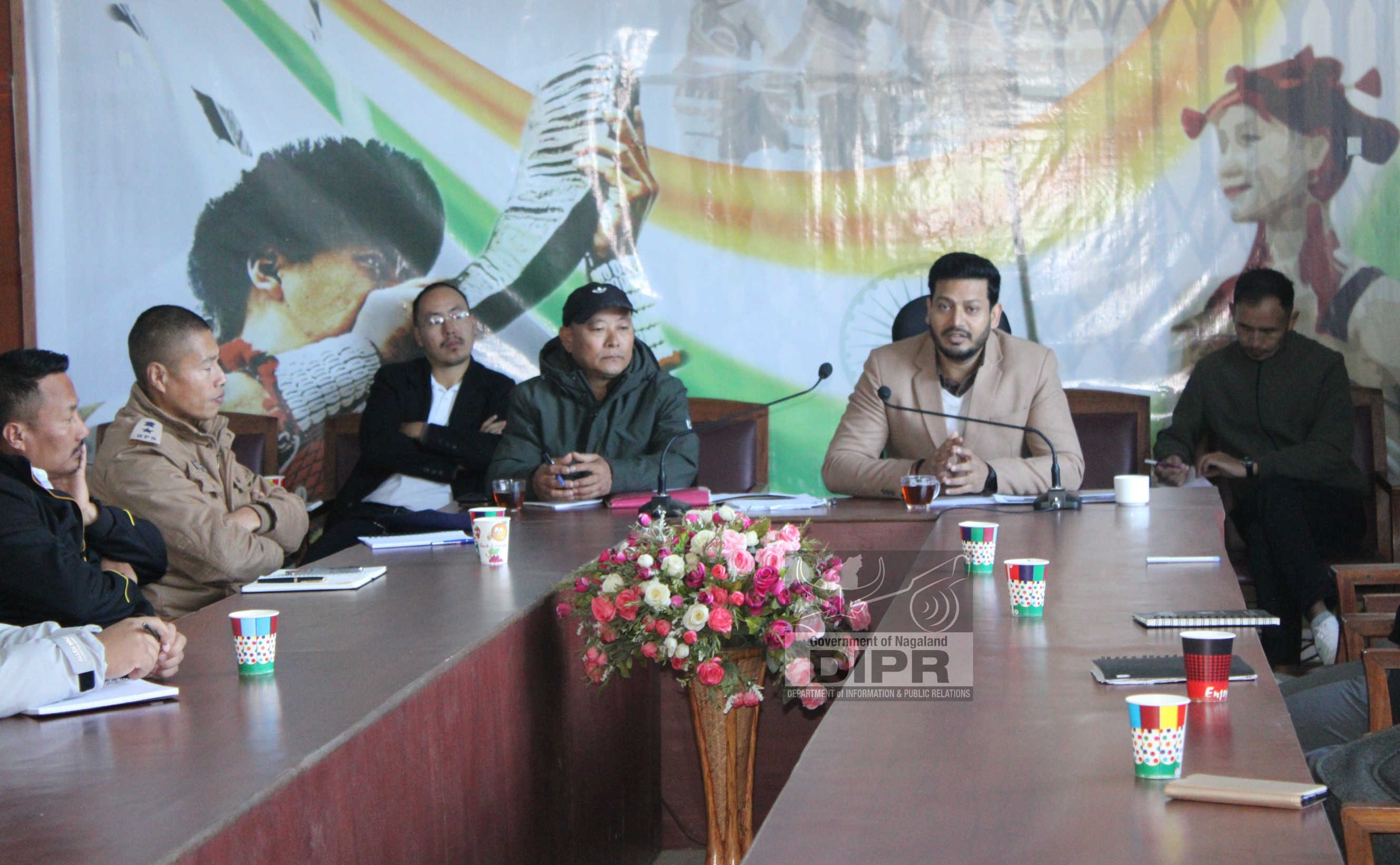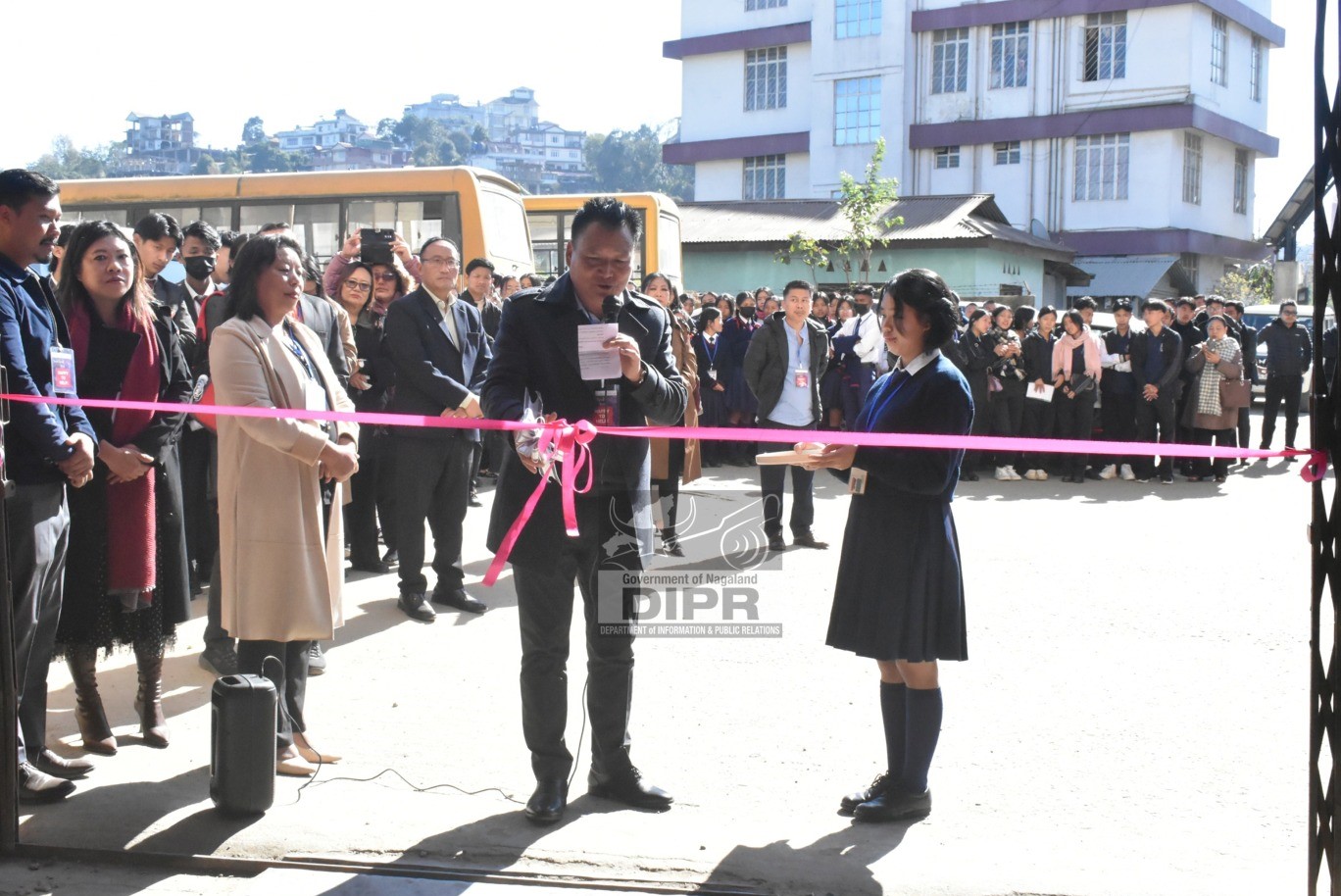A workshop on “Community Biodiversity & Wildlife Conservation” organised by Kohima Press Club in collaboration with Silviculture Division Kohima was observed at Botanical Garden Kohima on 21st June 2025.
Project Lead Wildlife Conservation Society- India, Bano Haralu, while speaking on the topic ‘Conservation Challenges in Nagaland’ said the press fraternity should also be sensitize on the changes in our environment, ecology and the eco system to survive in the next century. He said since the marriage between the indigenous and traditional knowledge and science needs to be brought together and collaborated as traditional knowledge on wildlife and bio-diversity are now being lost as it is not being shared with the younger generation. She felt that it has now become important in the villages to have interactions and communications about climate changes to start community conservations to benefit the community not just economically but ecologically in character building of the village and its value.
While sharing about the overview of the concern and challenges Nagaland faces in conservation, she pointed out that the people are the heart of conservation and highlighted that Nagaland population according to 2011 census shows approx. 1.9% million which the smallest amongst Indian states with the fertility and growth rate at 2.37 and Infant Mortality Rate (2019) just 3 per 1000 live birth which is the lowest in India. She stated that our state is in a very critical stage since Nagaland estimate population in 2026 would be 22.91 lakhs an increase of 15.79 % from 2011 census.
Highlighting on Primary Forest loss in Nagaland from 2002 to 2024, Bano Haralu projected that our state has lost 354 sq kms of humid primary forest and 2680 sq Kms of tree cover area and reasoned that the loss of so much tree covers was due to fragmentation of forest as Community Conserved Area, where connectivity is absent in most places, regularly hunting of birds and animals which is the major cause of slow regeneration of forest, absence of conservation awareness on ecological, indigenous and traditional knowledge about nature and its surrounding to the younger generation as these knowledge are now replacement by schools and textbooks and also communication breakdown at the community and societal level to teach the value of one’s tradition, culture and custom. She therefore expressed that due to these factors of not prioritizing conservation of environment, our state lacks behind in creating alternate livelihood incomes for farmers and people of the state. She also highlighted the imminent threats prevailing in state such as soil erosion, deforestation and the introduction of Monocropping culture.
Therefore, Bano Haralu called upon the press fraternity to reach to the people about increasing Community Conserved Areas and interlinking them with official demarcation by formation of collectives, support sustainable farm practices, promote youth leaders in conservation for monitoring and protection of biodiversity, establishing community infrastructure and community led eco and bio culture tourism.
Gwasinlo Thong, Member Indigenous People & Local Communities (IP&LC) Advisory Board, WCS-International, & Chairman Sendenyu Community Biodiversity & Wildlife Conservation Board spoke on the topic ‘Community Biodiversity & Wildlife Conservation’. While acknowledging the press fraternity he said the most immediate challenge we have today was the ecological and environmental issues that needs to be acted immediately. He narrated that our ancestors have lived side by side with nature in perfect harmony as forest to them meant food and shelter and their livelihood, and all their sowing and cultivation of land depended according to the change of seasons, arrival or departure of migratory birds or blooming of flowers etc thus maintained an ecological balance with nature.
He also urged all Nagas to defend Article 371A as it protects our identity and pointed out that if it is amended or removed, our very right of existence, our culture, and our history is at stake, and remarked that if Article 371 was considered as a hindrance for development, it was considered foolish.
Thong further took the audience on a visual tour of “Sendenyu Community Biodiversity and Wildlife Conservation Reserve” through a PowerPoint presentation, highlighting its history and journey of 25 years of efforts in conservation that put the Sendenyu Community Conserve Area as the first Biodiversity Education Centre in the state and be honoured with the Balipara Foundation Award in 2016.
Prabhat Kumar, IFS, State Silviculturist, in his speech highlighted in brief about the activities and the awareness the State Silviculture department undertakes for the community in conservation of forest and listed out that the two major roadblocks in conservation in Nagaland were deforestation and hunting. He stated that in the past hunting has been associated with tradition as they dependent on forest and wildlife for livelihood, but today he cited it is changed scenario, as people are now hunting not just for food but to sell in the markets and showcase on social media which he termed as dangerous. Regarding conservation of forest, he said it is the right thing for all individual to do as it is importance to save the forest for our future generations. He therefore called upon the media to disseminate this awareness as they are the link between various agencies, organisations and public.
President of Kohima Press Club, Alice Yhoshü in her opening expressed that the workshop is one of the programmes being organised as part of the yearlong celebration of the 25th Anniversary of KPC envisioned to help equip the members with more knowledge on biodiversity and conservation issues as well as help them to effectively report on biodiversity-related issues. The programme was chaired by Medolenuo Ambrocia, Journalist East Mojo & Member of Kohima Press Club.
(Maongtemjen, IA)



